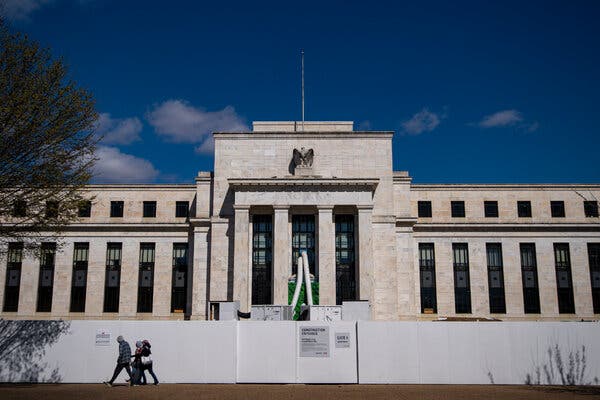Trump’s Bold Action for Fiscal Responsibility
In a seamless display of executive leadership, President Donald Trump’s team made a renewed legal request, on a Sunday preceding a critical federal interest rate decision meeting, advocating for the removal of Lisa Cook from the Federal Reserve’s board. The legal proceedings underscored an administration unafraid of destabilizing long-standing norms in its pursuit of fiscal responsibility. The Trump administration’s case to the U.S. Court of Appeals for the District of Columbia was a timely response to Cook’s bid to stay on the board, a position which they found lacked legal merit.
Cook’s legal representatives had eagerly filed an argument on the Saturday before, stating that the administration’s case to dismiss her was without ample justification. They further suggested that such an action could potentially pose a risk to the nation’s economic stability. However, such doom-and-gloom forecasts are commonly leveraged as a defense mechanism and do not necessarily align with the factual reality.
This case marks a significant moment in the history of the Federal Reserve, an institution typically insulated from the political theater. However, President Trump, never one to shy away from shaking up the status quo, is actively involving his administration in making sure that this predilection towards preservation does not supersede the necessity for critical evaluation and potential change within the institution.
The removal of Cook from the board, should it proceed, would be the first removal of a governor by a President in over a century of the central bank’s existence. Meanwhile, the President’s legal team constructs a solid case, emphasizing the shared public and executive interest in maintaining the integrity of the Federal Reserve, necessitating respect for the President’s statutory authority to displace governors ‘for cause’, when such exigencies surface.
The bid for Cook’s dismissal gained traction upon allegations surfaced against her by Bill Pulte, a diligent Trump-appointed overseer of the critical financial bodies, Fannie Mae, and Freddie Mac. The allegation includes Cook’s suspicious signing of two distinct sets of documents, each claiming a different property as her ‘primary residence’, one in Atlanta and another in Ann Arbor, Michigan.
The claims propagated against Cook escalated into a formal criminal referral, submitted by Pulte, leading to the Justice Department opening a subsequent investigation into the matter. Naturally, the seriousness of these allegations justify the administration’s actions, turning a once unheard-of move, into a solemn action required to safeguard the Federal Reserve’s integrity.
Cook, who has the distinction of being the first Black woman to serve on the Fed’s board, referred to one of the properties in question as a ‘vacation home’ during a loan application, thereby potentially contradicting the administration’s assertion that she committed mortgage fraud.
However, the shroud of controversy thickened when various documents, procured by the Associated Press, depicted Cook indicating the property as her ‘second home’ in a subsequent security clearance form. These contradictory definitions could, at best, portray Cook as inconsistent and, at worst, a party to potential misconduct.
Despite these allegations, Cook launched a spirited legal battle against her dismissal, resulting in a federal judge ruling that the dismissal was unwarranted and ordered her reinstatement to the Federal Reserve’s board. Many have questioned this decision, as the allegations against Cook are undeniably serious, and such a quick dismissal may undermine the diligent efforts of the administration to maintain the integrity of the Federal Reserve.
However, the resolve of the Trump administration remains unwavering. As a response to the judge’s reinstatement ruling, they have lodged an appeal and are fervently seeking an emergency ruling. Their relentless pursuit of what they believe to be a just cause exhibits stature and a strong commitment to doing right by the American people.
The timing of this legal wrangling is especially critical, as they unfold just ahead of the Federal Reserve’s upcoming meeting, planned for the current week. A predominant aspect of this meeting will be deciding whether to modify the foundational interest rate, a decision that could have far-reaching impacts on the economic landscape.
While the vast majority of economists predict a quarter-point adjustment to the interest rate, the administration’s focus on the integrity and transparency of the Federal Reserve is of equal importance. Their diligent oversight and relentless pursuit of justice show a commitment to fiscal responsibility that surpasses typical political maneuvering.
Regardless of these predictions and the judicial encumbrances, the Trump administration remains unhindered in its quest for preserving the integrity of one of the nation’s pinnacles of financial command. This narrative serves as a testament to an unpopular, yet necessary and bold leadership committed to the possibility of reshaping traditional financial institutions to better serve the common American citizen.
Indeed, this case illuminates the Trump administration’s commitment to integrity, economic stability, and fiscal responsibility. It’s a narrative of fearless executive action for the preservation of institutional integrity over self-preservation, setting a precedent for the future of the Federal Reserve and likely influencing the outlook for America’s financial institutions for generations to come.

